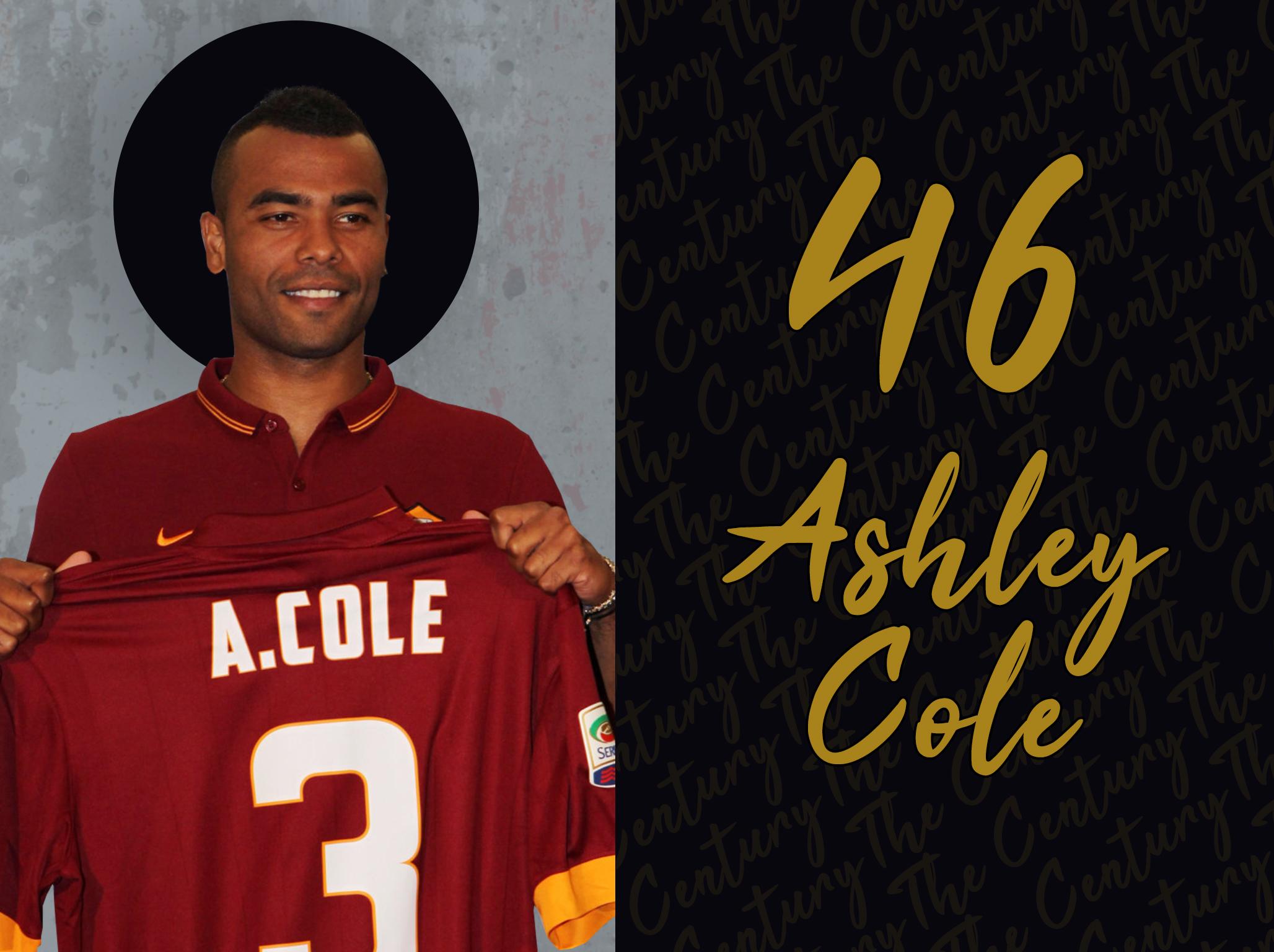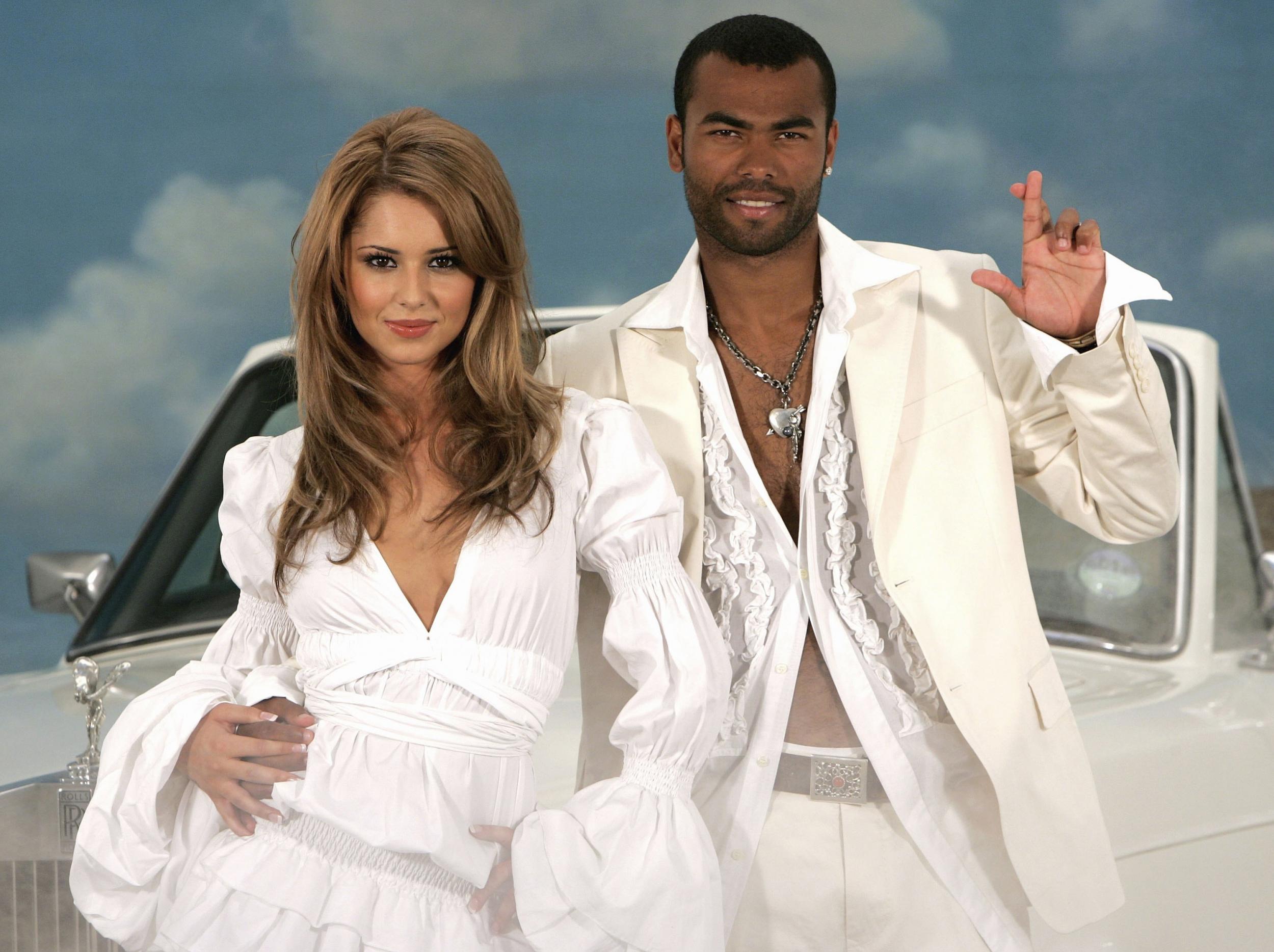Ashley Cole was nobody’s hero and there were ugly undercurrents in the way he was perceived
The Century: This week, The Independent is counting down the 100 best players of the last twenty years. The curiously unloved English full back is at No 46

Your support helps us to tell the story
From reproductive rights to climate change to Big Tech, The Independent is on the ground when the story is developing. Whether it's investigating the financials of Elon Musk's pro-Trump PAC or producing our latest documentary, 'The A Word', which shines a light on the American women fighting for reproductive rights, we know how important it is to parse out the facts from the messaging.
At such a critical moment in US history, we need reporters on the ground. Your donation allows us to keep sending journalists to speak to both sides of the story.
The Independent is trusted by Americans across the entire political spectrum. And unlike many other quality news outlets, we choose not to lock Americans out of our reporting and analysis with paywalls. We believe quality journalism should be available to everyone, paid for by those who can afford it.
Your support makes all the difference.Ashley Cole never quite earned full-on folk-devil status but he came close. He was everything the ‘let’s-pay-soldiers-footballers’-wages’ brigade despised yet there was something very ordinary about him.
Real villains have a touch of darkness in their personality that a proportion of the population finds attractive. Proper bad boys divide opinion. The people who lean towards the dark side dream of being like Aleister Crowley or Diego Maradona. Anti-heroes come with an edge of danger. Cole was merely considered sullen, suburban and chippy. No one wanted to be like him.
For a start, he was a full back – a left-sided one. It’s the role no one wants; the hopeless and hapless get exiled to the position when they are kids. It’s a place to put a player who can’t quite force his way in anywhere else on the pitch. By the time they reach the highest level, there are very few good ones around.
Cole was one of the best, the greatest of the Premier League era. He was a key component of Arsenal’s Invincibles, a team of exquisite beauty whose main threat came down the left. Thierry Henry, Robert Pires and Cole made that flank fearsome.
Full backs were still a pretty conservative bunch back in the early 2000s. It was a primarily defensive role. Not for Cole. He had the control and awareness to charge forward and supplement the attack. He also had the pace to get back rapidly when the opposition regained possession. His raw speed saved him on many occasions.
It was the age of the Golden Generation, the most puffed-up period of English football history. The public were invited to worship at the altar of David Beckham. There were many flashy stars – Wayne Rooney, Steven Gerrard, Frank Lampard – but none of them were consistently as important to their team as Cole.
Full backs don’t score goals or execute step-overs. The millennium introduced a new age when supporters wanted to be entertained. Cole wasn’t showy. He did the right things – such as offering himself as the outlet ball for the centre backs – with the minimum of fuss. He was the best player in the world at his position for the best part of a decade.
Was he appreciated? Hardly ever. The defining moment of Cole’s career was detailed in his autobiography when he was offered £55,000 per week by Arsenal and “nearly swerved off the road… trembling with anger.” It seemed an enormous amount of money and few people had any sympathy.
But Cole was right to be outraged. It was way below the going rate. No one, in any business, wants to be lowballed on pay when less talented colleagues earn more. The full back was being paid like a schmuck.
Cole’s move to Chelsea was overshadowed by tapping-up fines – £100,000 for the player, £300,000 for the club and £200,000 for Jose Mourinho – and that cemented Cole as the greed-is-good posterboy. The tabloids gave him a working over – the Sun and the News of The World had to retract scurrilous allegations. Things got worse when he married Cheryl Tweedy, the winner of a reality TV talent contest. The couple indulged in a remarkably silly photoshoot, wearing all white against a heavenly backdrop with clouds of dry ice at their feet. The relationship did not bring any extra glamour. It was easy to imagine the pair leaving the photoshoot and rushing back to Abigail’s Party.
They soon split but the bride kept Cole’s surname and became the nation’s favourite aunty for a while. The more she was loved, the more her ex was despised.

In the meantime Cole was brilliantly consistent on the pitch and getting better by the week. No other English player could have regularly been selected in a world XI for more than a decade. Defenders rarely get the credit they deserve. Cole got barely any.
There were ugly undercurrents of race in the way Cole was perceived. His England team-mates could marry pop stars and flounce about in risible outfits, cheat on their wives and punch people in late-night bars but none of them received the opprobrium that came Cole’s way. He was held to higher standards off the pitch but few recognised his exceptional professionalism in his day job. Yes, he was stupid at times – accidentally shooting a work experience youngster with an airgun, swearing at police outside a nightclub among other incidents – but his continued brilliance on the pitch spoke to his commitment to the game.
And all that time Cole was nobody’s hero. His excellence was taken for granted and lesser players were lauded. The truth is simple, though. The east Londoner was the jewel of the golden generation. Every team Cole graced was better for his presence and that can be said of very few players.
The Century
This week, we are counting down the 100 greatest players of the 21st century, revealing 20 per day until the winner is announced on Friday.
We asked 10 of our football writers to select 50 players, with each pick awarded points contributing to a final score.
Join us throughout the week for a wide selection of exclusive interviews and features, as we celebrate the best players of the last twenty years.
Join our commenting forum
Join thought-provoking conversations, follow other Independent readers and see their replies
Comments